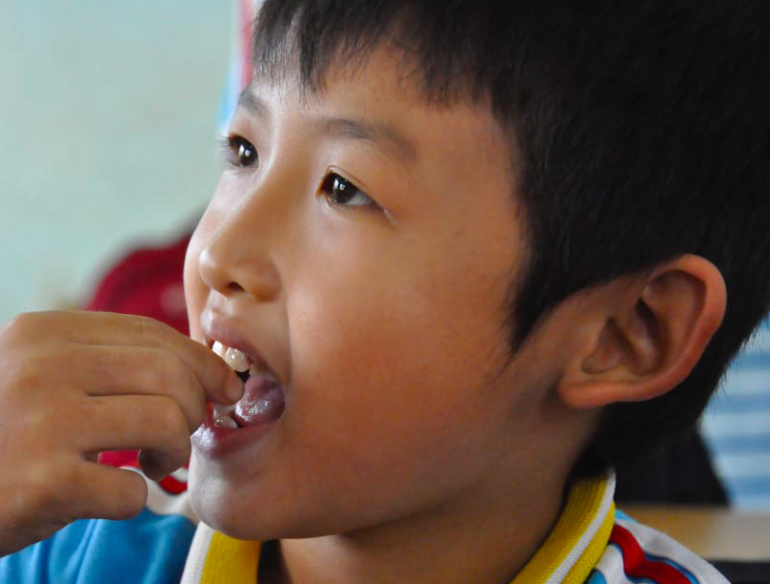Soil-transmitted helminths are intestinal worms that affect over a billion people worldwide, most of whom live in poverty. Control efforts in endemic countries focus on regular deworming of school-aged children, who are at high risk of the health effects of intestinal worm infections, such as poor growth and impaired cognitive development. The CoDe-STH trial aims to determine if treating entire communities leads to a greater reduction in intestinal worm infections among school-aged children, compared to treating school-aged children only.
The CoDe-STH trial is one of the first in the world, and the first in Southeast Asia, to compare the impact of school-based deworming and community-wide deworming on intestinal worm infections. This large cluster-randomised controlled trial is being conducted in 64 primary schools, with over 22,000 children and 70,000 community members being dewormed as part of the study interventions. Trial results will be complemented by cost-effectiveness analyses, feasibility and acceptability assessments, and mathematical modelling, to give a comprehensive picture of evidence to policymakers.
This large cluster-randomised controlled trial is being conducted in 64 primary schools in Dak Lak Province, Vietnam. In the control arm, 32 schools will receive school-based deworming only. In the intervention arm, community-wide deworming will additionally be done, in communities that send children to the school. Intestinal worm infections will be measured in school-aged children at study baseline, and 12 months following the deworming intervention, to compare the impact of the two deworming approaches. The study intervention is delivered by local health workers from the participating communities.
At study baseline in November 2019, our field team collected stool samples from nearly 9,000 school-aged children across the 64 study schools, and analysis of these samples to detect intestinal worm infections is underway. Over 21,000 doses of albendazole were delivered at participating schools, and nearly 80,000 doses of albendazole were delivered in participating communities. Follow-up data collection will take place in November 2020, and in the meantime, cost-effectiveness analyses and assessments of feasibility and acceptability will be conducted.
The CoDe-STH trial will provide a comprehensive picture of evidence comparing school-based and community-wide deworming for controlling intestinal worm infections. The findings will be highly relevant for policymakers and could influence global guidelines for soil-transmitted helminth control.
- Tay Nguyen University, Dak Lak Province, Vietnam
- Center for Parasitic Diseases Control & Prevention, Dak Lak Province, Vietnam
- Department of Education & Training, Dak Lak Province, Vietnam
- University of Melbourne
- Erasmus MC, Rotterdam, the Netherlands

